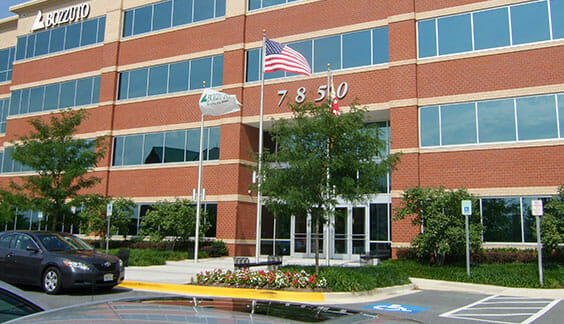Steps of the Workers’ Compensation Claims Process
At Houlon Berman, we want to ensure that employees who were injured on the job are fairly compensated for their medical costs, lost wages and any impairment. Filing for workers’ compensation can be intimidating, especially if your employer is reluctant to offer any information. An experienced attorney can help you file a claim properly and advocate for you to receive just compensation.
Understanding the steps of the workers’ compensation claim process is key to getting the award you deserve. If you are ready to file a claim in Maryland, contact our team today.
Why Contact an Attorney for Your Workers’ Compensation Claim?
While filing a claim for workers’ compensation should be straightforward and easy enough for anyone to do, the truth is that there is a lot that can go wrong. Claims can be contested, paperwork filed incorrectly or late, and benefits can be cut off. Trying to navigate the maze of bureaucracy alone can take up all of your time and consume your patience.
A good attorney will take most of the burden away from you and become your advocate by:
- Filing all of the necessary paperwork
- Making sure the claim is submitted correctly and on time
- Addressing statute of limitations problems
- Working directly with insurance carriers to get the benefits you deserve
- Filing petitions for hearings as needed
- Representing you at hearings
- Getting you an award of permanent impairment if necessary
Don’t assume your employer is going to pay just because things seem to start out well. It is in your best interest to understand the workers’ compensation claim process and have an attorney familiar with your case from the beginning so they can act fast if something goes wrong.
Steps to File a Workers’ Compensation Claim
If you have been injured on the job, you are required to file a claim with the Maryland Workers’ Compensation Commission (WCC). You should contact a workers’ compensation attorney as soon as possible after your accident. Knowledgeable attorneys can ensure that your claim paperwork is completed accurately and efficiently.
You must also notify your employer of your accident as soon as possible to avoid any statute of limitations issues and to establish the grounds for your claim.
It’s important to note that you may be offered compensation by your employer voluntarily. However, you still need to file a claim with the Workers’ Compensation Commission. You should also retain a lawyer to prepare for any potential issues with your employer’s insurance carrier.
It is your employer’s responsibility to file the appropriate First Report of Injury or Illness with the Workers’ Compensation Commission as notification of the accidental injury/death, or occupational disease/death.
Within 21 days, your employer should either begin to pay benefits or contest your claim. The claim then moves to processing, where the WCC decides on an award if your employer did not file any contesting issues. If your employer did file contesting issues, your case will be scheduled for a hearing before the WCC.
Benefits Phase of the Workers’ Compensation Claim Process
There are three stages in the benefits phase of workers’ compensation claims:
- The healing period
- Maximum medical improvements
- Permanency or death benefits
In the healing period, you receive payment for appropriate medical treatment because you are unable to return to work. If the period of disability is 14 days or less, certain benefits might not be paid for the first three days. However, if the period of disability is longer than 14 days, benefits are paid from the date of disability. If your employer filed objections to your claim during the healing period, a hearing will be required to assess your case.
If there were no objections to your claim, you will continue to receive medical treatment until your physician believes you have reached maximum medical improvement. Once you have reached this point, your attorney will submit all relevant medical files to a physician, who will then opine on the impairment rating for your injury.
If you have reached maximum medical improvement, but are no longer able to perform the actions required in your previous job, you can attend vocational rehabilitation to help re-enter the workforce.
If you have reached the point of maximum medical improvement and have some type of permanent disability, your employer could voluntarily pay permanency benefits for your permanent partial or permanent total disability. These payments could be made by order after hearing, by stipulation, or by settlement.
Payments made by stipulation involve both parties agreeing to an amount to be paid while leaving the claim open to provide for future required benefits.
According to the Maryland WCC, payments made by settlement involve both parties agreeing to a lump sum payment and “the future life of the claim.”
If your employer does not voluntarily pay permanency benefits, your attorney can file to request a hearing before the WCC. The commission will then decide your compensation and order your employer to make the appropriate payments.
Types of Workers’ Compensation Benefits
Workers’ compensation benefits revolve around level of disability and recovery time. The major categories of benefits are defined as follows:
- Temporary total disability: The benefits you receive during the healing period if you are completely disabled and cannot return to work.
- Temporary partial disability: The benefits you receive during the healing period if you are disabled so that you can only complete some of your work duties.
- Permanent total disability: Benefits you receive if you are completely and permanently disabled.
- Permanent partial disability: Benefits you receive if you are permanently impaired but are not totally disabled. You will receive benefits for a set length of time based on established statutes.
The extent of your injury will determine the compensation you receive. A workers’ compensation lawyer knows how to get you the compensation you deserve.
Potential Issues with Workers’ Compensation Benefits
Even if your employer offers to pay benefits immediately, it is still essential to file a claim with WCC to protect yourself from problems that may arise in the future. There are time limitations for when you can file a workers’ compensation claim, making it imperative that you do so as soon as possible after your injury.
Workers’ compensation issues with employers tend to include the following:
- Your employer decides to stop paying benefits before you are justly compensated
- You discover that your injury is more serious than anticipated and additional medical treatment is required, but your employer is unwilling to pay for this new treatment
- Your employer contests your claim
By filing a claim with the WCC, you are protecting yourself in case these problems arise. Having a claim on file will allow you to request a hearing before the WCC, who can then work to ensure you receive appropriate compensation.
Our attorneys have experience addressing problems obtaining compensation and can advocate for you in a WCC hearing.
Contact Houlon Berman to File Your Claim
It can be challenging to navigate the steps of the workers’ compensation claim process. If you have been injured on the job, don’t wait to file your claim. Doing so can prevent you from getting compensation. Contact Houlon Berman’s team of workers’ compensation lawyers in Maryland to get the representation you need. Please note that we do not handle DC or federal compensation cases.
Go from Steps of the Workers’ Compensation Claim Process in Maryland to Workers’ Compensation
Return to the Houlon Berman Homepage


